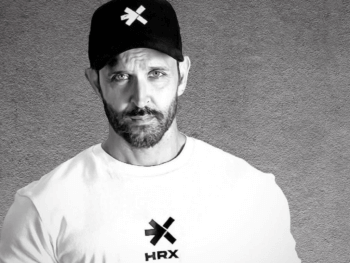
The issue of paternity leave has come to the forefront in the arena of parental issues. But do dads need to take that time off?
When Facebook founder Mark Zuckerberg announced in 2015 that he would take two months paid paternity leave after the birth of his first child, the media and business sectors both buzzed in excitement over the news. Cleverly released in a Facebook post, the CEO’s move has become the ultimate endorsement for paternity leave which he encourages Facebook employees to take by offering up to four months of paid maternity or paternity leave.

Photo Credit: www.vogue.com
Despite research showing that paternity leave can strengthen the relationship between a father and newborn into childhood, reports continue to show that in the United Sates, only a third of men eligible take paternity leave. In Canada, only one in 10 eligible fathers are taking leave. In the United Kingdom, where two weeks of paternity leave is offered to fathers, only 10 per cent will take any additional time (which can be subtracted from the maternal leave). And in India, where father’s are offered 15 days of paid paternity leave, most will also not take any additional (unpaid) time off.
Without one tangible reason as to why the number continues to be so low, we spoke to some new fathers to discuss if cultural norms and stigmas played a role in their choice to not take leave. What we found through candid conversations, was that fathers still felt like they wouldn’t be as much help or benefit to the child in comparison to the mother.

Photo Credit: www.cbc.ca
With appreciation on how much their wives do for their infants on a daily basis, they just did not feel they could provide as much support (without guidance or a lot of questions) to their infants on an extended paternity leave as their wives would. The difficulty and/or impact of going through pregnancy on a mother’s body was also discussed as justification for a mother having more time at home. When asked about splitting the amount of parental leave between the two of them, fathers were more comfortable with their wife making the decision on when/if she prefers to return to work and when.
Father’s also expressed they would feel displaced if their wife chose to return to work asking them to stay at home. Though laughs were shared over the idea of daddy daycare and playdates with groups of men taking their children to the park mid-afternoon, many didn’t think it would translate well into their reality. Most agreed they would feel uncomfortable knowing and telling other’s their wife was at work while they were at home as they feel being a financial provider is a big part of their contribution to family life.

Photo Credit: dolblog.sites.usa.gov
These candid, open conversations are great platforms to discuss gender expectations when it comes to parenting roles and responsibilities. With the introduction of parental leave being a huge step of progress in the past decade, the importance of a father’s presence in a child’s life is acknowledged more than ever before.
Despite the increased acknowledgement, many still feel when it comes down to a mother and/or father, the mother will naturally take the role of primary caregiver. Perhaps it’s due to the biology of a mother carrying a child, going through labor and producing the milk for nourishment, but most people still would chose a mother’s presence as more valuable to a newborn’s life.
Even in terms of celebrating parenthood, surveys have shown that if Mother’s Day and Father’s Day were on the same day, 78 per cent of children would focus more on celebrating their mom with a leading justification that the mother does more to take care of them.
Fortunately, we have separate days to celebrate mothers and fathers and rightly so. The role both parent’s play in a child’s life shouldn’t be compared in terms of value and are equally important. And, although the increase is small, we are seeing more families where the father is happy to be the primary caregiver. Movies like Mrs. Doubtfire, Mr. Mom, Daddy Daycare and What to Expect When You’re Expecting all bring humour to family dynamics and encourage father involvement from the early stages.

Photo Credit: www.blueray.com
Mark Zuckerberg certainly made an impact and helped by endorsing paternity leave, however, it’s important to note that most companies are not offering the same benefits as Facebook. Since Canada, the United Kingdom and India still don’t offer full financial support for an extended period of time (in the case of the U.S.A, no federal, paid paternity leave is offered), many father’s feel taking paternity leave will put their family in financial stress or could prevent them from opportunities of growth in their career.
Until we see more financial backing and encouragement in the business world for paternity leave, the likelihood of father’s feeling comfortable taking extended leave likely won’t increase.
Main Image Photo Credit: www.vagendamagazine.com
Rachna Sethi
Author
Rachna (@thesassyspiritual) is a graduate of the Applied Mindfulness Meditation program from the University of Toronto, a certified Educator with two bachelor degrees and a diploma in Art Therapy. She's dedicated to living with a compassionate approach. Committed to helping people integrate Mindfuln...














































































































